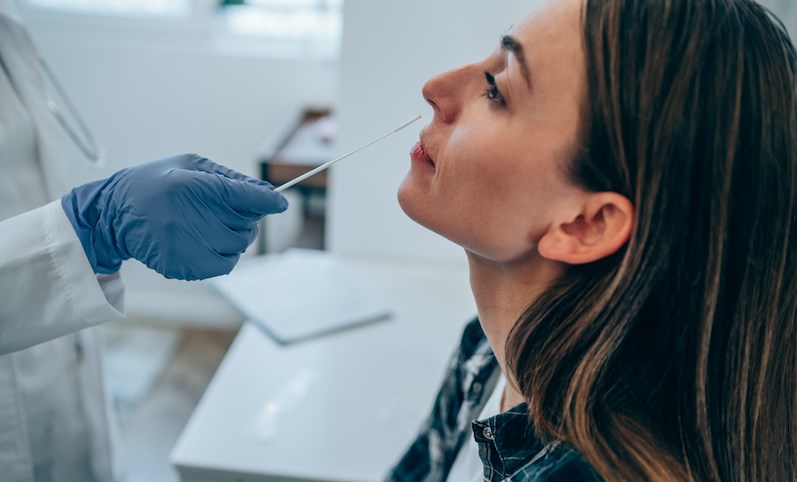Have you received a call from a public health employee about an appointment to get tested for coronavirus?
The Better Business Bureau (BBB) is warning British Columbians about a scam involving fake COVID-19 test appointments.
The Omicron variant has resulted in a surge in cases across the province and more people have been hunting for COVID-19 tests. Metro Â鶹´«Ã½Ó³»residents have often waited in long lines to access rapid testing at clinics.
And while locals have been able to order rapid antigen tests online, they often have to wait several days to receive an order. Since the variant has a notably short incubation rate (in comparison to other strains), people are eager to get tested as soon as possible.
Unfortunately, scammers have taken advantage of the lack of available testing by offering people fake appointments in order to lure them into disclosing their personal health information, and, in some cases, money.
According to the Canadian Anti-Fraud Centre, in most cases, consumers will receive a phone call from someone claiming to be a medical professional or public health employee, asking them to make a COVID-19 test appointment. From there, they will proceed to obtain information such as the individual's name, birth date, health card number, and other sensitive details.
Locals should also be on the lookout for scammers who are pretending to be someone reaching out from a local drug store, workplace, or school. They will send emails and texts with a link asking you to confirm that you would like to be tested and to "fill out personal and medical information and/or submit your COVID-19 test result once you have it."
In one incident, a B.C. resident was looking for COVID-19 travel testing information and accidentally contacted a fake online travel agency. The "agency" informed her that she'd need to send payment via Google gift cards to receive an emergency note to allow her to travel and take a COVID-19 test.
How to Avoid COVID-19 Testing Scams
The BC Centre for Disease Control (BCCDC) reminds the public that COVID-19 tests are available at testing centres and that they can use the to find one near them.
Consumers should be concerned if someone tells them COVID-19 testing will cost "hundreds of dollars," notes that BBB.
While testing clinics may be used for individuals, the is for organizations seeking a rapid antigen test screening program for their workplace. When using the rapid test kit, be sure to closely follow the .
Consumers should also exercise caution when purchasing at-home testing kits versus getting them through an authorized site.
"Be sure to do your research first," cautions the BBB, noting that people will want to ensure that the companies are authorized to sell medical devices in Canada by searching the on the Government Canada website.
You should also verify the brand or manufacturer of the test kits is approved by Health Canada by browsing the .
If you are asymptomatic and require testing for reasons such as travel or employment, you must visit a private testing clinic where prices may vary. Visit the BCCDC website to find an .
Ultimately, you must "be wary of unsolicited callers and messages" as a legitimate company or health clinic will not call, text, or email you without your permission. Don't give anyone personal details until you confirm that it is a legitimate source.
The BBB adds: "Read the fine print on any documentation you are asked to sign. Question where the personal information is being kept, as well as if it is secure, what lab is processing the results, and read the agreement carefully before signing.
"If anything within the agreement does not seem right, leave and find another testing facility."




